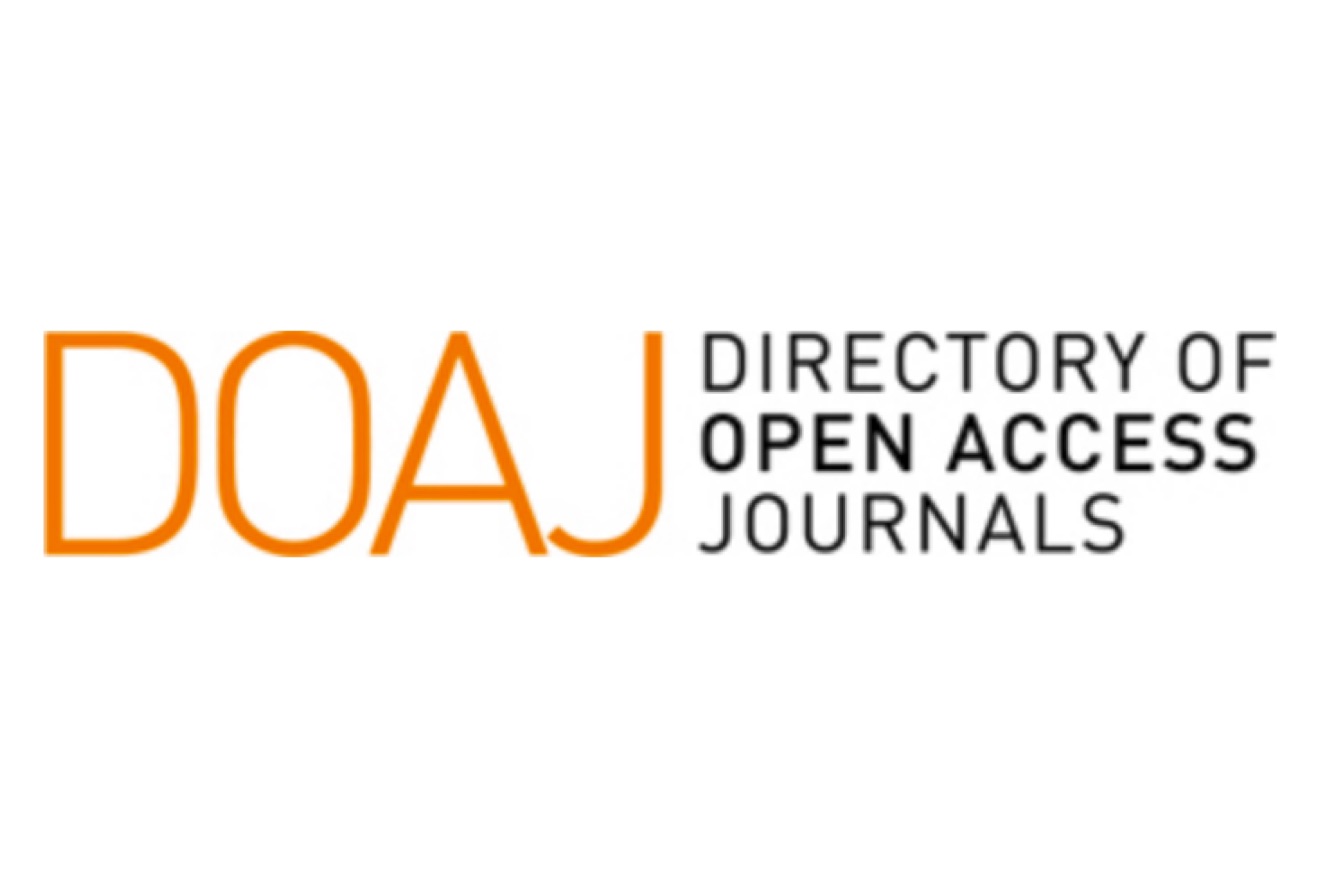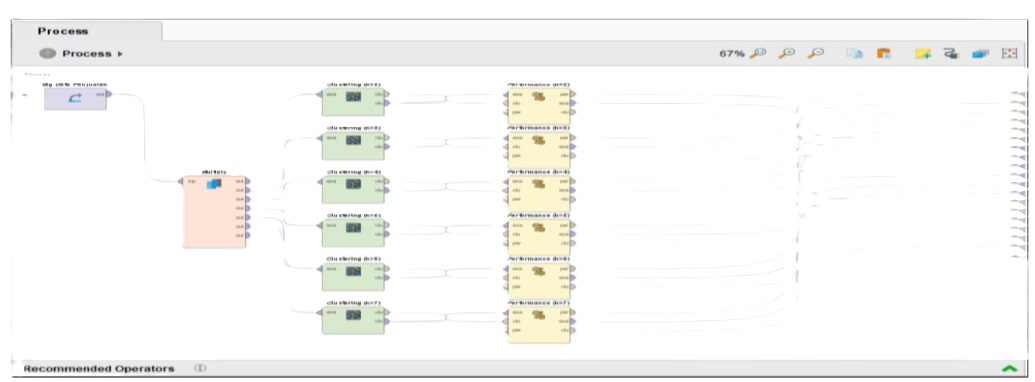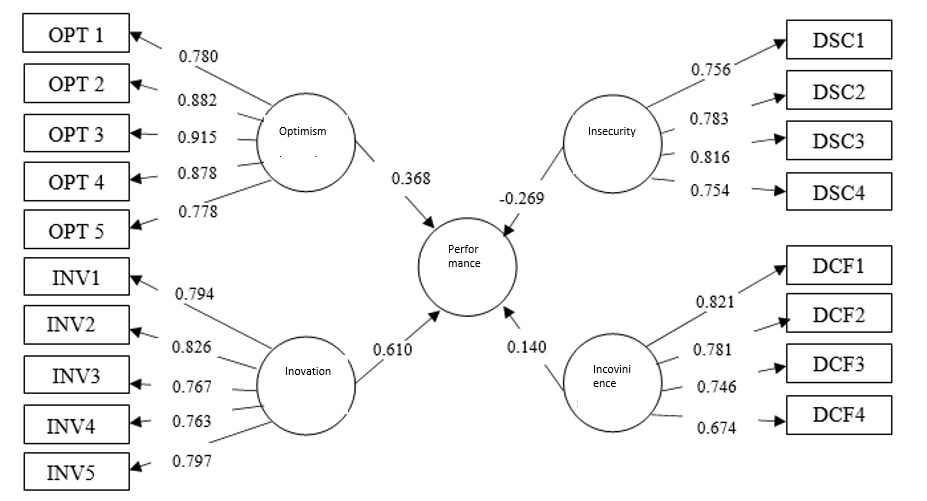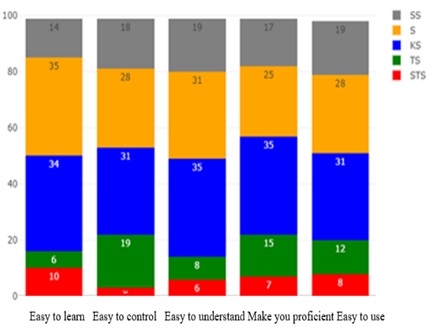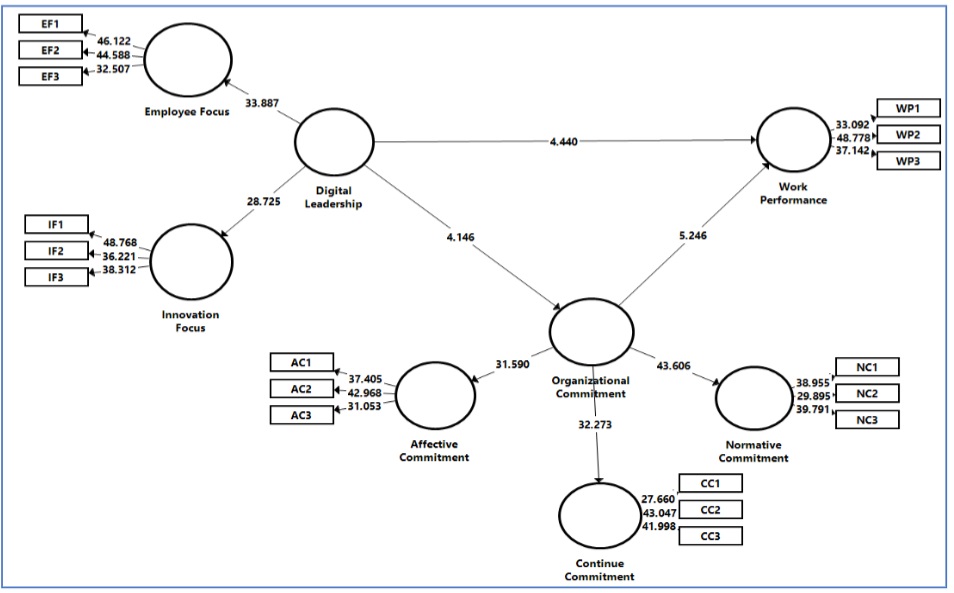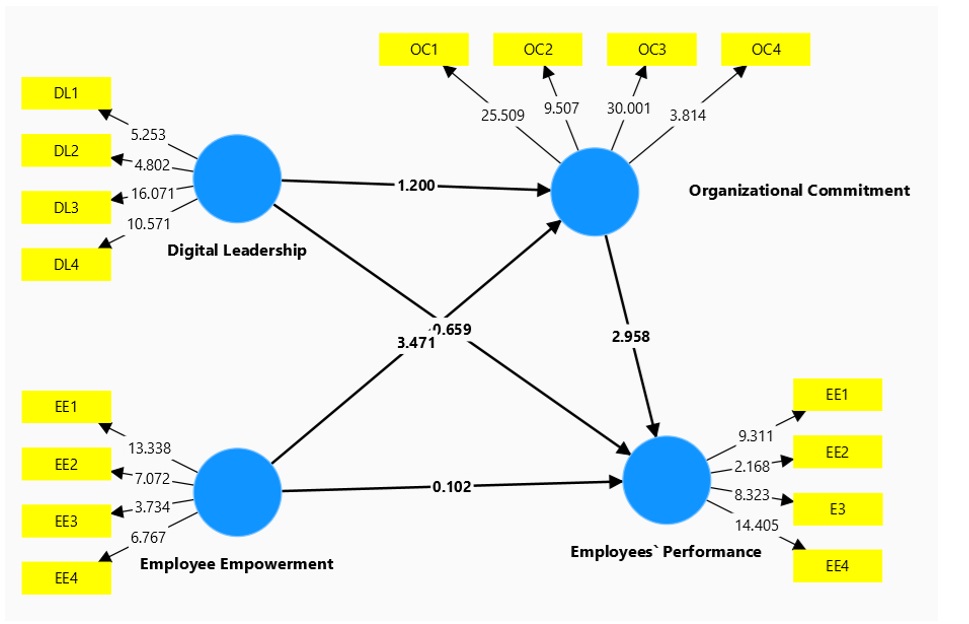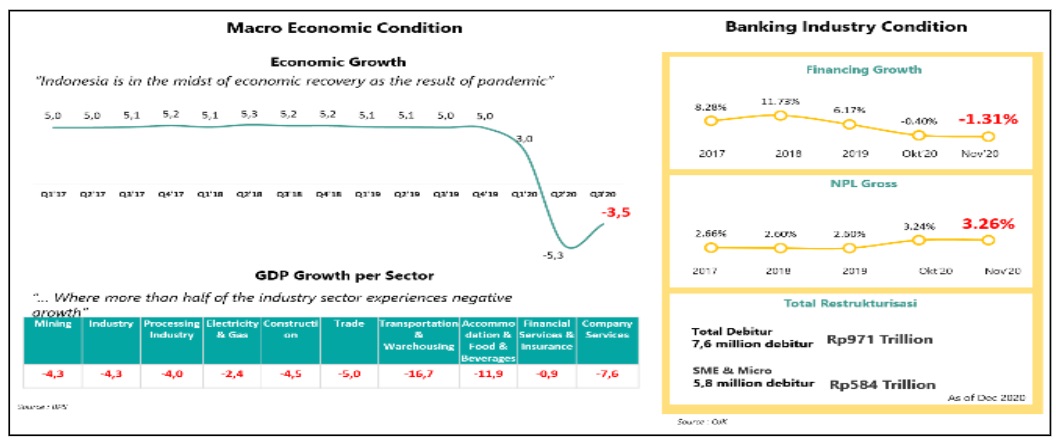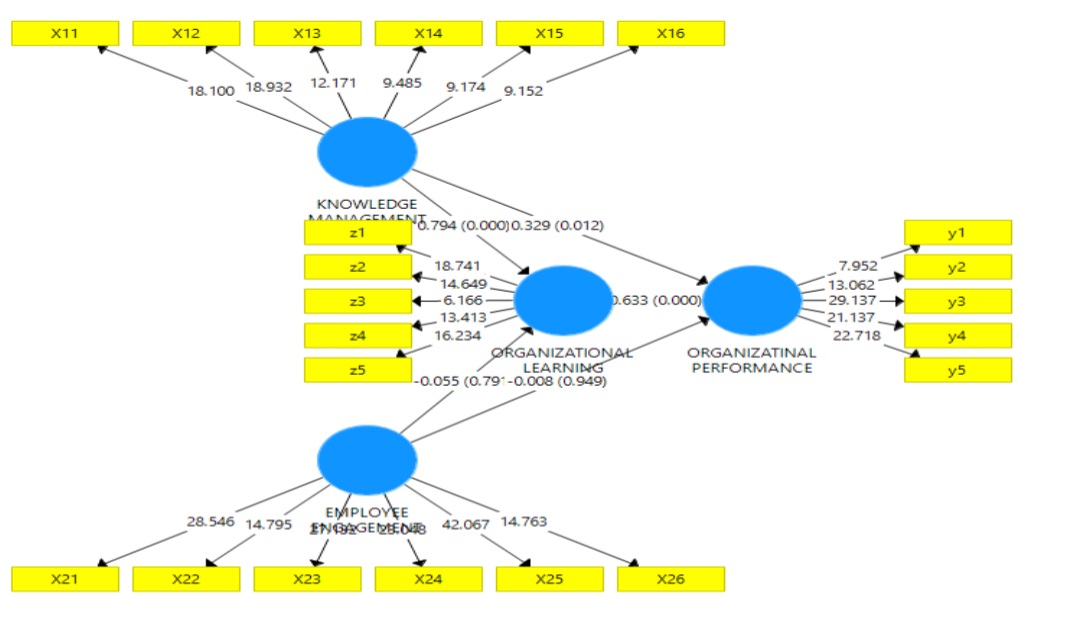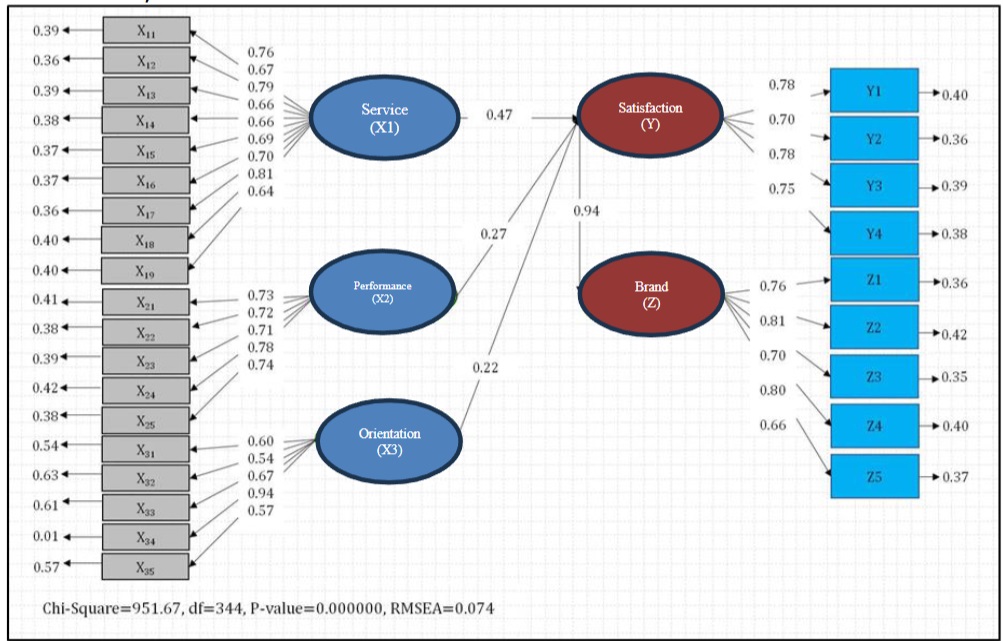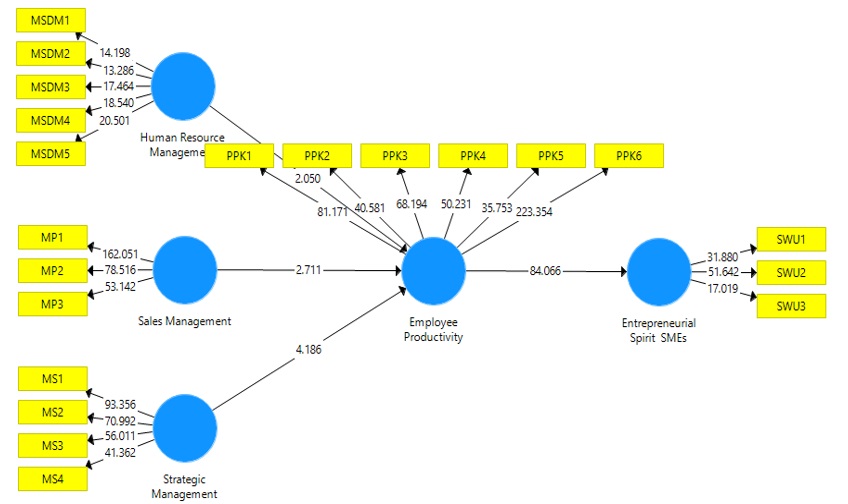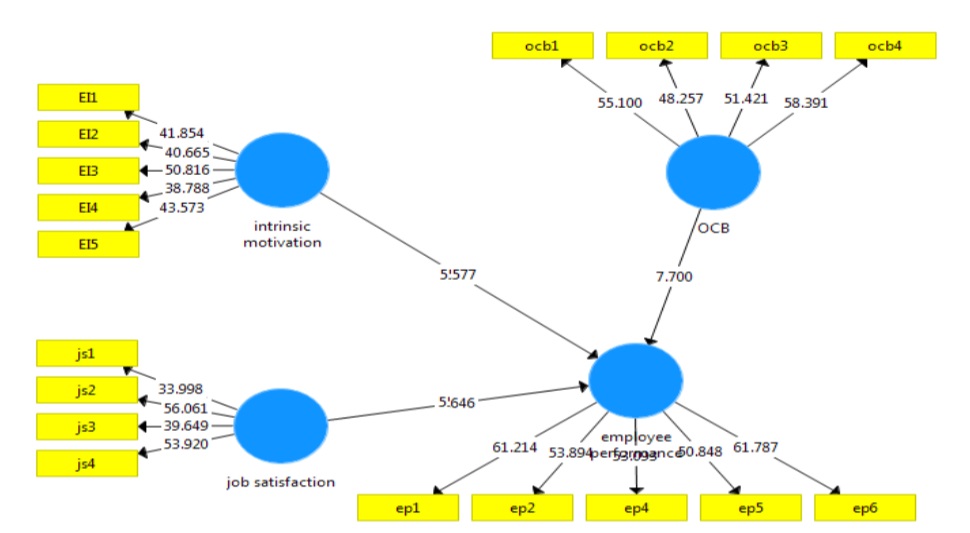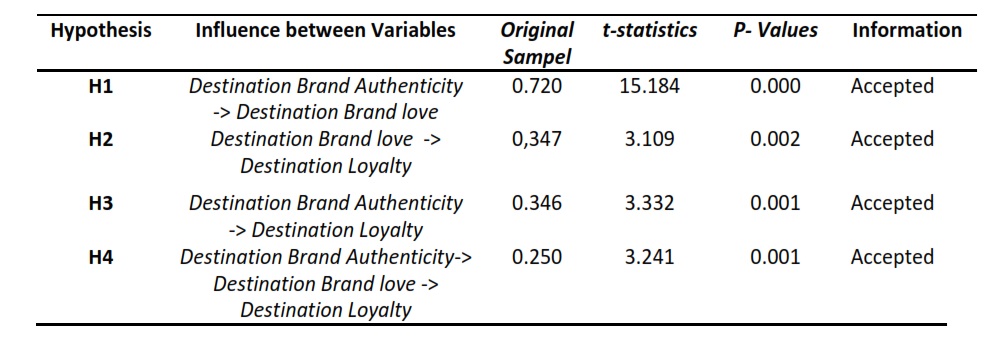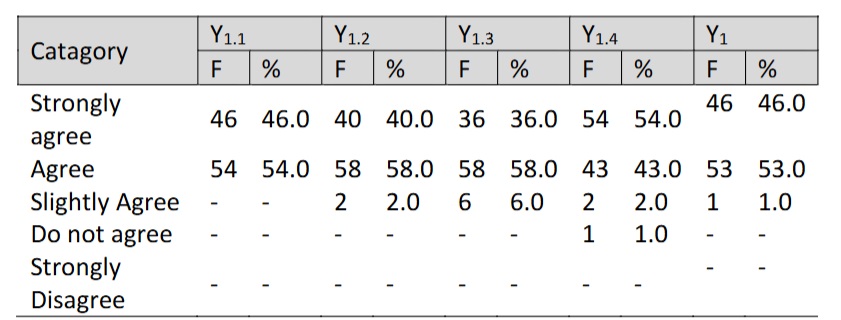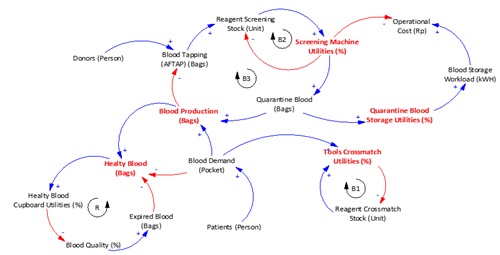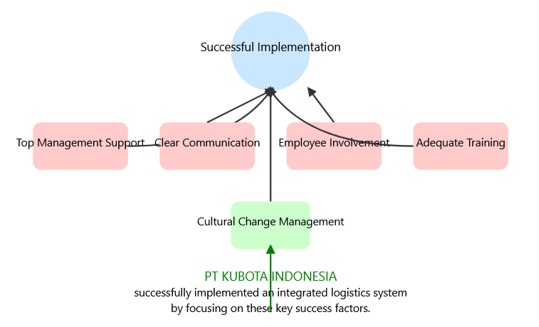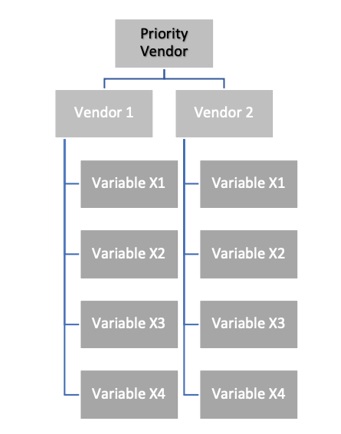PERLUKAH PENDAMPINGAN TERHADAP PELAKU UMKM DALAM MEMANFAATKAN MEDIA SOSIAL SEBAGAI SALURAN PEMASARAN STRATEGIS?
Downloads
Abstract
The rapid change and easy to use technology should be able to trigger the use of technology in MSME. However, the reality tells the different. There is only few MSMEs that already implement and use technology (social media) as their part of business strategy. Therefore, this research aim to know what is the factor that affects MSMEs attitude toward technology (social media) adoption through perceived usefulness and perceived ease to use. Researcher use individual and external factor which consist of social influence, compatibility, organizational barrier, self-efficacy, and individual proficiency. This research uses descriptive analysis and path analysis as analysis method with questionnaire as data gathering method. This research concluded that social value, compatibility and self-efficacy has significant effect toward perceived easy to use and perceived of usefulness. The low of individual proficiency regarding social media indicates that there is an opportunity for academicians or anyone to be a mentor for UMKM in exploring social media channel.
Keywords: Perceived Usability, Perceived Usefullness, SME's, Intention To Use, Social Media, Marketing
Abstrak
Pemanfaatan teknologi merupakan faktor krusial dalam keberlangsungan UMKM. Sayangnya, tidak banyak UMKM yang memanfaatkan teknologi (media sosial) ini sebagai strategi pemasaran dan penjualan mereka. Berdasarkan fenomena tersebut, peneliti berkeinginan untuk mengetahui faktor apakah yang menyebabkan rendahnya tingkat adopsi media sosial sebagai saluran pemasaran baru bagi pelaku UMKM. Peneliti menggunakan kombinasi faktor individual dan eksternal seperti pengaruh sosial, kompatibilitas, hambatan organisasi, keyakinan-sendiri, dan kemahiran terhadap media sosial sebagai pembentuk presepsi kegunaan dan kemudahan media sosial serta niat penggunaan secara tidak langsung. Penelitian ini menggunakan analisa deskriptif dan jalur sebagai metode analisis dengan kuesioner sebagai instrumen peneletian. Penelitian ini berhasil membuktikan bahwa pengaruh sosial, kompatibilitas, dan keyakinan diri berpengaruh terhadap persepsi kemudahan penggunaan dan persepsi kegunaan. Kurangnya pemahaman tentang pengaplikasian media sosial yang ditunjukkan pada rendahnya kemahiran penggunaan media sosial dapat menjadi peluang bagi akademisi untuk menghubungkan UMKM dengan media sosial baik sebagai tutor ataupun administrator.
Kata kunci: Persepsi Kegunaan, Persepsi Kemudahan Penggunaan, UMKM, Niat Penggunaan, Media Sosial, Pemasaran
Downloads
A. B. Primanto, M. K. ABS, and A. R. Slamet, "A Study of The Best Selling Smartphone in The Two Biggest Marketplace in Indonesia,” J. Terap. Manaj. DAN BISNIS, vol. 4, no. 1, pp. 17–24, 2018.
M. H. Purwidiantoro, K. D. F. S.W, and W. Hadi, "Pengaruh Penggunaan Media Sosial terhadap Pengembangan Usaha Kecil Menengah (UKM),” J. EKA CIDA, vol. 1, no. 1, 2016.
J. Hamdani and C. Wirawan, "Open Innovation Implementation to Sustain Indonesian SMEs,” in Procedia Economics and Finance 4, 2012, pp. 223–233.
R. Bocconcelli, M. Cioppi, and A. Pagano, "Social media as a resource in SMEs' sales process,” J. Bus. Ind. Mark., vol. 32, no. 5, pp. 693–709, 2017.
S. Ha, A. Kankanhalli, S. J. Kishan, and K.-W. Huang, "Does social media marketing really work for online SMEs?: An empirical study,” in Proceedings of the 37th International Conference on Information Systems, 2016, pp. 1–21.
M. A. Nugroho, A. Z. Susilo, M. A. Fajar, and D. Rahmawati, "Exploratory Study of SMEs Technology Adoption Readiness Factors,” in Procedia Computer Science 124, 2017, pp. 329–336.
D. D. Ellyana, A. Redy, and A. Hamzah, "Variabel Anteseden Dan Konsekuensi Pemanfaatan Sistem Informasi (Studi Empiris Pada Pemerintahan Kabupaten Di Pulau Madura),” J. Akunt. dan Keuang. Indones., vol. 6, no. 1, pp. 71–88, 2009.
J. Lu, "Are personal innovativeness and social influence critical to continue with mobile commerce?,” Internet Res., vol. 24, no. 2, pp. 134–159, 2014.
S. G. Mazman, Y. K. Usluel, and V. í‡evik, "Social influence in the adoption process and usage of innovation: Gender differences,” World Acad. Sci. Eng. Technol., vol. 1, no. 4, pp. 229–232, 2009.
J. Y. Lai and C. Y. Chang, "User attitudes toward dedicated e-book readers for reading: The effects of convenience, compatibility and media richness,” Online Inf. Rev., vol. 35, no. 4, pp. 558–580, 2011.
K. Kanchanatanee, "Factors Affecting the Intention to use E-marketing of Small and Medium Sized Businesses in the Three Southern Border Provinces of Thailand,” Int. J. Bus. Soc. Sci. Sci., vol. 5, no. 6, 2014.
M. Esmaeilpour, S. Y. Hoseini, and Y. Jafarpour, "An empirical analysis of the adoption barriers of e-commerce in small and medium sized enterprises (SMEs) with implementation of technology acceptance model,” Int. J. Control Theory Appl., vol. 21, no. 2, 2016.
N. A. S. Diksani, I Komang Ari; Sinarwati, Ni Kadek; Darmawan, "Pengaruh Keyakinan Diri Atas Komputer, Keinovatifan Personal, Persepsi Kegunaan, dan Persepsi Kemudahan Penggunaan Terhadap Penggunaan SIA (Studi Pada Kantor Cabang Utama Bank Central Asia di Singaraja),” JIMAT (Jurnal Ilm. Mhs. Akuntansi) Undiksha, vol. 2, no. 1, 2014.
M. S. M. Ariff, S. M. Yeow, N. Zakuan, A. Jusoh, and A. Z. Bahari, "The Effects of Computer Self-Efficacy and Technology Acceptance Model on Behavioral Intention in Internet Banking Systems,” in Procedia - Social and Behavioral Sciences, 2012, pp. 448–452.
A. Balavivekanandhan and S. Arulchelvan, "A Study on Students Acquisition of IT Knowledge and Its Implication on M-Learning,” Sci. World J., 2015.
S. J. Czaja et al., "Factors predicting the use of technology: Findings from the Center for Research and Education on Aging and Technology Enhancement (CREATE),” Psychol. Aging, vol. 21, no. 2, pp. 333–352, 2006.
A. A. Hamid, F. Z. A. Razak, A. A. Bakar, and W. S. W. Abdullah, "The Effects of Perceived Usefulness and Perceived Ease of Use on Continuance Intention to Use E-Government,” in Procedia Economics and Finance 35, 2016, pp. 644–649.
N. Ermawati and Z. M. Delima, "Pengaruh Persepsi Kemudahan Penggunaan, Persepsi Kegunaan, dan PEngalaman Terhadap Minat Wajib Pajak Menggunakan Sistem E-Filling (Studi Kasus Wajib Pajak Orang Pribadi Di Kabupaten Pati),” J. Akunt. Indones., vol. 5, no. 2, pp. 163–174, 2018.
Ariani and M. N. Utomo, "Kajian Strategi Pengembangan Usaha Mikro Kecil dan Menengah (UMKM) di Kota Tarakan,” J. Organ. dan Manaj., vol. 13, no. 2, pp. 99–118, 2017.
A. Wicaksono (Politeknik APP), "Strategi Pemasaran dengan menggunakan Analisis SWOT Tanpa Skala Industri Pada PT X Di Jakarta,” J. Manaj. Ind. DAN LOGISTIK, vol. 1, no. 2, pp. 192–201, 2017.
JMIL Jurnal Manajemen Industri dan Logistik (Journal of Industrial and Logistics Management) is an Open Access Journal. The authors who publish the manuscript in JMIL Jurnal Manajemen Industri dan Logistik agree to the following terms:

JMIL Jurnal Manajemen Industri dan Logistik is licensed under a Creative Commons Attribution 4.0 International License. This permits anyone to copy, redistribute, remix, transmit and adapt the work provided the original work and source is appropriately cited.
This means:
(1) Under the CC-BY license, authors retain ownership of the copyright for their article, but authors grant others permission to use the content of publications in JMIL Jurnal Manajemen Industri dan Logistik in whole or in part provided that the original work is properly cited. Users (redistributors) of JMIL Jurnal Manajemen Industri dan Logistik are required to cite the original source, including the author's names, JMIL Jurnal Manajemen Industri dan Logistik as the initial source of publication, year of publication, volume number, issue, and Digital Object Identifier (DOI); (2) Authors grant JMIL Jurnal Manajemen Industri dan Logistik the right of first publication. Although authors remain the copyright owner.















